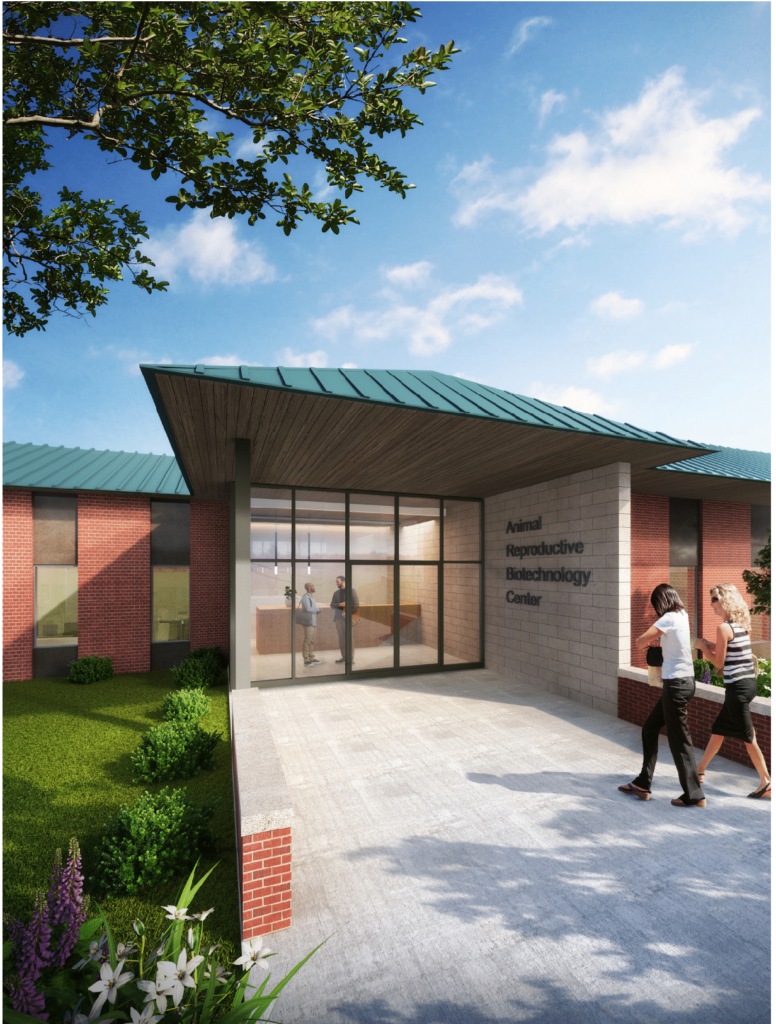Strengthening sustainable livestock systems through animal science
State-of-the-art facility to improve reproductive strategies, impact industry through innovative technologies in field and classroom
Reproduction issues are a major concern for livestock producers as they can greatly affect their bottom line and ultimately impact the cost of meat for consumers. Reproductive failure in livestock species results in millions of dollars of profits lost annually, according to the U.S. Department of Agriculture National Institute of Food and Agriculture.

Already nationally and internationally recognized for its innovative and transformative research in the field, the Department of Animal Science in the Texas A&M College of Agriculture and Life Sciences looks to enhance its teaching, research and outreach capacity to better increase understanding of animal reproduction at a molecular, cellular and whole animal level while addressing known reproductive issues.
Through a new $13-million Animal Reproductive Biotechnology Center, the department aims to strengthen its pursuit of innovation and collaboration through academic and industry-partnered research, focusing on the latest techniques and hands-on instruction.
The center is expected to be completed in late 2024 on the Texas A&M-RELLIS campus, a 2,400-acre applied research campus in Bryan. It will include educational spaces, animal-handling areas and dedicated research lab space for emerging technologies and practices for academic and industry partner use.
Strengthening livestock systems through science and innovation
The Animal Reproductive Biotechnology Center will be a further collaboration between the department and industry to work together to generate science that optimizes reproductive efficiency and minimizes economic loss for producers.
“Our land-grant mission at Texas A&M AgriLife gives us a specific duty to drive emerging science that pushes innovation to better serve those around us,” said Jeffrey W. Savell, Ph.D., vice chancellor and dean for Agriculture and Life Sciences. “The value added when industry joins in conversations with some of the world’s leading scientists and researchers is immeasurable.”
Industry partnerships and collaborations play a pivotal role in helping Texas A&M AgriLife remain responsive to the needs of the industry.
“It’s essential that we generate science our partners can trust and apply,” said G. Cliff Lamb, Ph.D., director of Texas A&M AgriLife Research. “To do this, we will need to be more creative and entrepreneurial to effectively support our programs as we strive to create the translational research necessary to develop and produce sustainable livestock systems with local, national and global impacts.”
Essential to that goal are instructional facilities like the new center that will be used for teaching and training students and stakeholders on the latest research and understandings needed to improve production efficiency in animal agriculture and enhance human health.
Giving to the College of Agriculture and Life Sciences
The Texas A&M Foundation is a nonprofit organization that exists for the benefit of Texas A&M University. The Foundation works with former students, corporations and other Texas A&M supporters to match their charitable interests with the university’s priorities. Gifts create scholarships, advance faculty endeavors, enhance student programs and fund new buildings, ultimately creating a brighter future for Texas A&M, one relationship at a time.
To donate to the new Animal Reproductive Biotechnology Center, go to http://give.am/ANSCConstructionFund or contact Jennifer Ann Scasta, senior director of development, at 979-845-7594.


